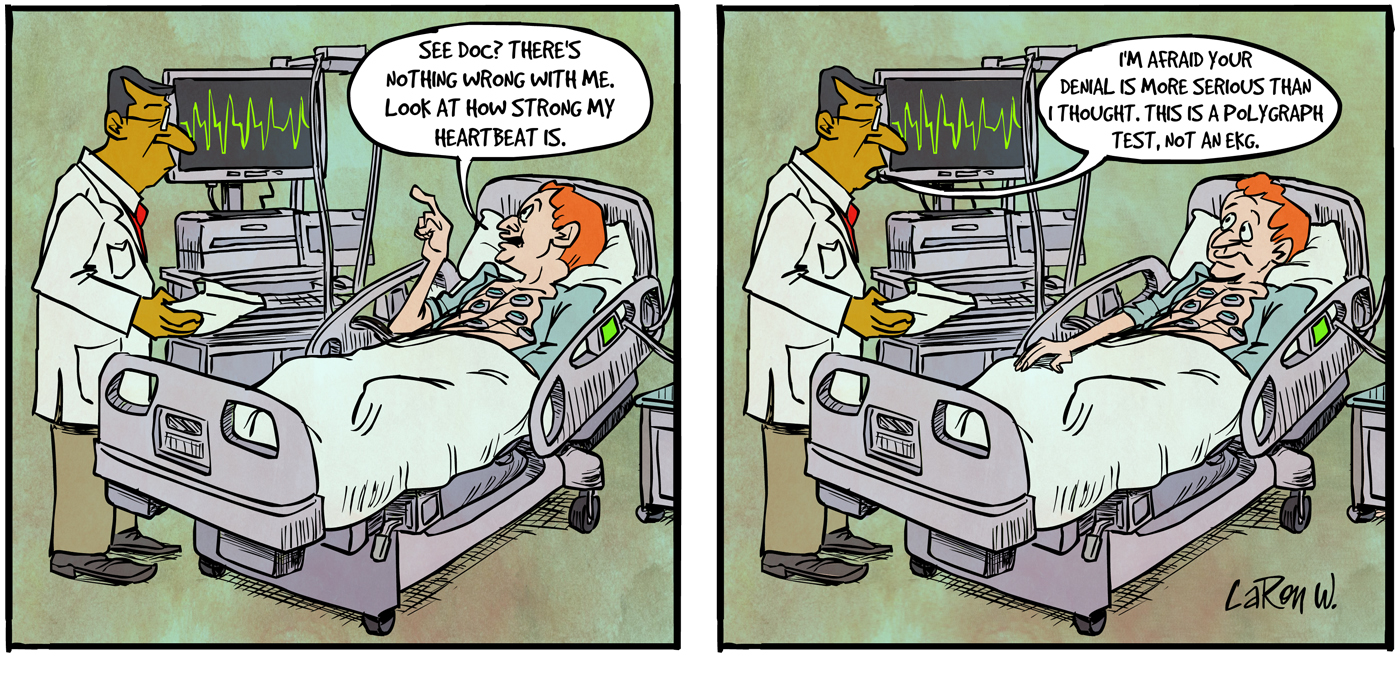At the beginning of Sexaholics Anonymous (15), the narrator says in part: “Then one night out of nowhere a prostitute jumped into my car…” (emphasis added). I used to think that my own behaviors occurred “out of nowhere.” I ignored the reality that a whole lot of my own choices put me in a situation and in the state of mind and spirit that brought about a lust-related experience. It was never “out of nowhere.”
Last October, I led a workshop on relapse prevention at a Chicago SA-sponsored retreat. The workshop focused on recognizing early warning signs of relapse and on taking immediate remedial action in order to stay sober and make progress in recovery. During the session, we shared our experiences, and I made lists of the members’ input. Afterward, I wrote up the work product to circulate among participants and other members of SA. This has been a useful tool for me and for my sponsees.
I would like to share the group’s work product with others in the fellowship who might be interested. Following is a partial list of our findings. If you would like a copy of the complete work product, please contact me at gary-iowa@juno.com.
Thanks for letting me share,
Gary L.
. . . . . . . . . .
I. Early Warning Signs of Relapse
- Not bringing things into the light—keeping secrets
- Becoming complacent—feeling of being in control
- Staring, taking second looks, rubber-necking
- Inappropriate self-touching
- Positioning self to “enhance the view”
- Engaging in flirting, intrigue
- Preparation “just in case”
- Cruising non-porn: catalogs, ads, art books, etc.
- Getting into sobriety-definition debates
- “I can handle this” attitude—not asking for help
- Justifying little things as unimportant
- Engaging in negative self-talk
- Playing the victim
- Voyeuring of self
- Keeping small things hidden
- Blaming others—not accepting responsibility
- Dishonesty
- Taking credit for my recovery
- Resorting to half-truths
- Distancing myself from Higher Power / God
- Not avoiding slippery places or situations
- Breaking boundaries—using shortcuts
- Not making sobriety a priority
II. Preventive Measures When Discovering Early Warning Signs
- Tell someone now
- Talk to sponsor, in detail
- Get to a meeting as soon as possible, including open AA meetings if needed
- Journal—write about what is bothering me
- Ask God in
- Practice rigorous honesty
- Remember past pain and loss
- Surrender
- Do what I don’t want to do—take the action and the feelings will follow
- Take action: “Turn your head, move your feet”
- Run the reel through to the end
- Stay in the present
- Do an act of kindness
- “Bookend” risky situations
- Always have a plan and use it
- Make a gratitude list
- Take directions from sponsor or recovering person
- Use positive self-talk
- Take an action of love
III. Intensive Care Plan
In addition to the above measures, our local group has devised the idea of an Intensive Care Plan (based on the medical model) for those who are having trouble staying sober. Some of us have found this idea helpful, so at the conference, we included it in our list of preventive measures. The plan includes items such as a daily calendar listing all daily activities; boundary check list to be used on a daily basis; list of positive sobriety actions with a checklist for each day showing which were used that day; prayer journal; and other aspects as necessary to a particular situation. The plan is shared with a sponsor or with an intensive care accountability partner. It is used for at least 30 days, and extended as necessary.






